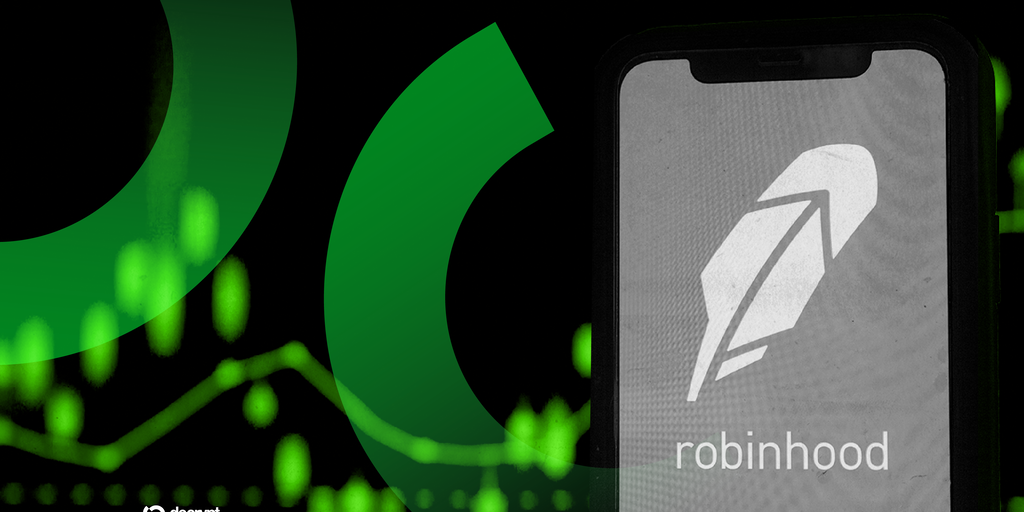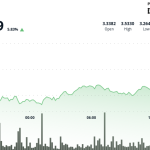Robinhood’s OpenAI & SpaceX Stock Token Giveaways Ignite Controversy
Facing criticism from OpenAI, Elon Musk, and members of the DeFi community after listing “tokenized stock” for high-profile private companies, Robinhood CEO Vladimir Tenev claimed the tokens grant “indirect exposure to private markets.”
A conflict erupts
Facing backlash from OpenAI, prominent figure Elon Musk, and members of the decentralized finance (DeFi) community, Robinhood CEO Vladimir Tenev defended the move.
“OpenAI is putting out this statement to be safe because they have to,” investor Amit Kukreja argued, suggesting the digital representation matters despite OpenAI’s disclaimer.
Rather than actual equity, Robinhood describes the offerings as tokenized contracts mirroring the price of the assets on the Ethereum-based Arbitrum scaling network. As stated by a Robinhood spokesperson: “Tokens give retail investors indirect exposure to private markets, opening up access.” However, the company emphasizes users are not buying actual company shares.
“When buying stock tokens, you are not buying the actual stocks. You are buying tokenized contracts that follow their price, recorded on a blockchain.” Robinhood clarified the nature of the offering.
Rohmnhood’s token launch on Monday was met with immediate pushback from OpenAI. In a Tuesday post, OpenAI founder and CEO Sam Altman stated the tokens represent “not OpenAI equity.” Full quote: “We did not partner with Robinhood, were not involved in this, and do not endorse it. Any transfer of OpenAI equity requires our approval—we did not approve any transfer.”
Musk adds fuel to the fire
Elon Musk, CEO of Tesla and SpaceX, and a co-founder of OpenAI before leaving the company, appeared to back the criticisms. In a subsequent post, Musk bluntly asked: “Your ‘equity’ is fake.”
After his 2018 departure from OpenAI due to disagreements, Musk argues there’s a fundamental disconnect between tokenized claims and true ownership.
A lucrative launch?
The launch appears aimed at European investors due to U.S. regulatory hurdles and reaches select customers by lottery based on quiz performance, according to Robinhood.
For Robinhood, the venture involves the firm’s ownership stake in a specialized vehicle called Falcon Trust. An initial public offering (IPO) of common stock in OpenAI and SpaceX has not occurred. The spokesperson elaborated: “These tokens give indirect exposure to private markets, opening up access, and are enabled by Robinhood’s ownership stake in a special purpose vehicle.”
“To cap off our recent crypto event, we announced a limited stock token giveaway on OpenAI and SpaceX to eligible European customers,” detailed the Robinhood release. The stated goal was accessibility and engagement.
Defining problems
In essence, stock tokenization converts claims on real-world assets, like company shares, into smart contracts and digital tokens on a blockchain. Experts argue this potentially simplifies investing but lacks widespread legal acceptance, especially for private companies.
“OpenAI is putting out this statement to be safe because they have to,” investor Amit Kukreja stated on X following OpenAI’s denial. “All Robinhood did was establish a token that tracks the valuation of OpenAI on private markets.” For Kukreja, the digital nature suffices for exposure.
Robinhood remained optimistic, suggesting future potential despite criticisms: “It’s very possible CeFi [centralized finance] with distribution just outcompetes existing DeFi protocols.” Tenev framed it as providing market access to previously closed opportunities.
Legal hurdles
Kurt Watkins, founder of Watkins Legal (via Decrypt), contends the offering’s structure creates “commercially unviable” products. Citing the U.S. Securities and Exchange Commission (SEC), Watkins stressed, “Robinhood’s OpenAI tokenized equity product will face severe SEC scrutiny due to its fundamentally opaque SPV [special purpose vehicle] structure.” He warned: “Crucially, there is no guarantee the tokens will actually track OpenAI’s price since they lack meaningful underlying rights and could face liquidity issues.”
“Even with Robinhood’s disclaimers, this opacity combined with a clear Howey Test securities classification would trigger registration requirements demanding far more comprehensive disclosure than currently provided,” Watkins articulated. He believes current disclosures are insufficient.
“OpenAI’s explicit disavowal that these tokens ‘are not OpenAI equity’ and that no transfer was approved exposes the illusory nature of the investment, creating exactly the type of misleading financial product that securities laws are designed to prevent,” explained Watkins.
Ren, a partner at Electric Capital, characterized Robinhood’s tokens as a “walled garden,” noting potential restrictions and lack of interoperability with the broader DeFi ecosystem: “Just decompiled Robinhood’s tokenized stock contracts. It’s a walled garden, every transfer checks a registry of approved wallets (KYC/AML). It’s unlikely these tokens can interact with DeFi.” Ren concluded, “It’s very possible CeFi with distribution just outcompetes existing DeFi protocols.” This, he argued, stems from CeFi controlling user onboarding.












